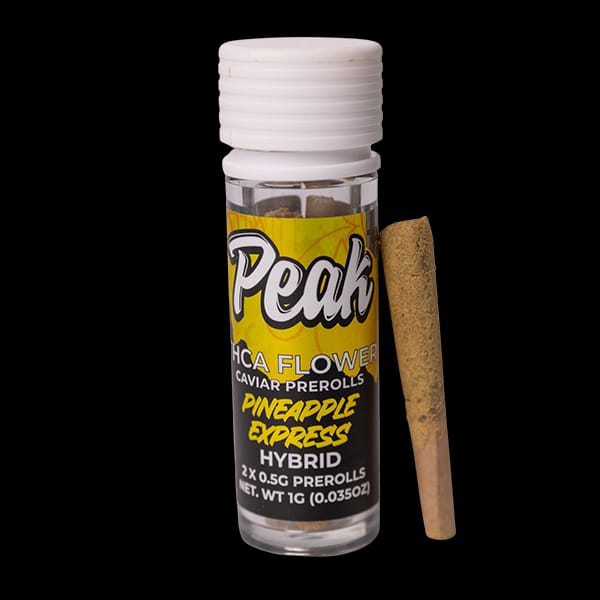As the popularity of cannabinoids continues to rise, particularly with the surge of interest in hemp-derived products, questions about drug testing and potential legal implications have become increasingly common. Tetrahydrocannabinol (THC) is a psychoactive compound found in cannabis that produces the feeling of being “high.” However, its precursor, tetrahydrocannabinolic acid (THCA), found in raw cannabis, has raised concerns among individuals subject to drug testing. In this article, we will explore the relationship between THCA and drug tests, shedding light on the complexities and providing insights into how it may impact the results.

Understanding THCA and THC
The cannabis plant naturally contains THCA, a non-psychoactive compound. It exists in abundance in the raw, unprocessed plant material. THCA is converted into THC when cannabis is heated or decarboxylated. As marijuana is smoked, vaporized, or heated during the preparation of edibles, this conversion occurs.
Decarboxylation involves removing the carboxyl group from THCA, converting it into THC. In order for THC to produce its psychoactive effects, it must undergo this transformation in order to bind to cannabinoid receptors in the brain. Check out THCA Pre-rolls for more information.
Drug Testing and THC Detection
Cannabis drug tests focus primarily on detecting THC in the body. This is due to the fact that THC is responsible for the euphoric effects associated with marijuana use, and it is a compound that is regulated in various jurisdictions.
Drug tests typically look for the presence of THC metabolites, such as THC-COOH, in urine, blood, or hair samples. These metabolites are formed as the body processes THC. The standard threshold for a positive drug test result is often set at 50 nanograms per milliliter (ng/mL), though this can vary by jurisdiction and testing method.
THCA and Drug Testing
Due to the fact that THCA is the precursor to THC, it does not produce the psychoactive effects associated with its counterpart. THCA is not a controlled substance in its natural state and is not subject to standard drug testing. However, the situation becomes more complex when considering the potential for THCA to be converted into THC under certain conditions.
The possibility of THCA converting to THC depends on how cannabis products are consumed. For instance, if cannabis is smoked or vaporized, the heat applied during these processes initiates decarboxylation, leading to the transformation of THCA into THC. In such cases, individuals may test positive for THC in a drug test, even if their initial consumption involved raw cannabis with predominantly THCA. Click CannaAid Shop to learn more about THCA.
Hemp-Derived Products and THCA
The legalization of hemp and hemp-derived products in many regions has introduced new challenges when it comes to drug testing. Hemp is a variety of cannabis that contains minimal THC, usually below the legal threshold of 0.3% in the United States. However, hemp plants still contain THCA, and specific processing methods can lead to the conversion of THCA into THC.
In full-spectrum hemp extracts, which include cannabinoids and terpenes, trace amounts of THC may be present. Even though these amounts are generally too small to cause intoxication, they can still contribute to a positive drug test result, especially when consumed regularly or in high doses.
Isolated THCA Products
As the demand for alternative cannabinoids increases, some manufacturers are producing isolated THCA products. These products are marketed as containing only THCA, with no detectable THC. While these products may be attractive to individuals concerned about drug testing, it’s essential to consider potential contamination during the manufacturing process.
Regulatory Oversight and Labeling Accuracy
The lack of consistent regulation and oversight in the cannabinoid industry poses challenges for consumers seeking accurate information about the THC content in their products. Inaccurate labeling or variations in manufacturing processes can lead to discrepancies between the stated and actual THC content, increasing the risk of unintended THC exposure.
Factors Affecting Drug Test Results
Several factors can influence whether THCA consumption will result in a positive drug test. These factors include the individual’s metabolism, the frequency and quantity of consumption, the specific drug test used, and the accuracy of product labeling.
Metabolism: Every individual’s metabolism varies, affecting how quickly cannabinoids are processed and eliminated. Some people may metabolize THC more rapidly, reducing the detection window for drug tests.
Frequency and Quantity of Consumption: Regular and high-dose consumption of THCA-containing products increases the likelihood of THC accumulation in the body, potentially leading to a positive drug test.
Specific Drug Test Used: There are different levels of sensitivity and specificity associated with different drug tests. THCA and other cannabinoids may cross-react with some tests, causing false-positive results.
Product Labeling Accuracy: Accurate labeling of THC and THCA content on product packaging is crucial for informed consumption. However, inconsistencies and inaccuracies in labeling can contribute to unexpected drug test outcomes.
Conclusion
In conclusion, the relationship between THCA and drug testing is nuanced and influenced by various factors. While THCA itself is not typically screened for in standard drug tests, its potential conversion into THC poses a risk for individuals consuming cannabis products. Understanding the specific circumstances under which THCA may be converted into THC, along with considering factors such as metabolism, consumption patterns, and product accuracy, is crucial for making informed decisions.
Individuals subject to drug testing should exercise caution and thoroughly research the products they consume, opting for reputable sources with transparent labeling practices. As the cannabinoid landscape continues to evolve, ongoing research and regulatory efforts will play a vital role in providing more precise guidelines and ensuring consumer safety.
from Health Archives - Market Business News https://ift.tt/5gOzcYy
via IFTTT



0 Comments